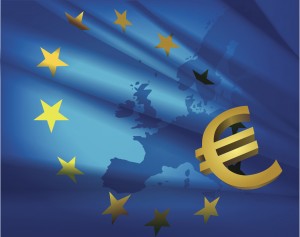The Grexit saga continues… What do Euro traders need to know?
 A standoff between Greece and its creditors: we’ve been here before – but this time it could be different. Greece’s exit from the Euro has been a possibility since the beginning of the global downturn but this summer has seen a distinct shift in tone. With William Hill announcing that all bets on Grexit are off and with Germany’s economy minister saying that “enough is enough“, we could be shifting from possibility to probability.
A standoff between Greece and its creditors: we’ve been here before – but this time it could be different. Greece’s exit from the Euro has been a possibility since the beginning of the global downturn but this summer has seen a distinct shift in tone. With William Hill announcing that all bets on Grexit are off and with Germany’s economy minister saying that “enough is enough“, we could be shifting from possibility to probability.
How did we get here? What’s next and what does it mean for the Euro? We take a look…
The current state of play…
The latest impasse centres around €300m that was due for payment to the IMF at the beginning of June, but which has since been deferred to the end of the month. The €300m was a relatively small instalment of a larger €1.5bn repayment due to the IMF on 30 June. To pay that back, the Greek government desperately needs to receive €7bn in bailout funds – but to unlock this, the Greeks need to make spending cuts worth €2bn. This is part of proposal that involves Greece getting its house in order, by achieving a budget surplus through, among other things, reforms to VAT and pensions. All of this is a big ask against a backdrop of 26% unemployment and an economy that has shrank by a quarter since 2010.
A stalemate on Friday 12 June saw a 5.9% drop on the Athens ATG index followed by a further drop of 5.4% the following Monday after talks broke down completely over the weekend. Thursday is the next red-letter date: described as Greece’s “last chance” to strike a deal.
Grexit explained
In 2009, the then Prime Minister, George Papandreou introduced a programme of tough spending cuts to counter spiralling public debt. It wasn’t enough, and by the following May, the eurozone had to come to Greece’s aid with a €110bn rescue package in exchange for even tighter austerity measures. July 2011 saw a further €109bn transferred to Greece via the European Financial Stability Facility. By October 2012, the country was onto its fourth bailout against a backdrop of mass unemployment, strikes and riots.
In the eyes of the ‘troika’ (EU, IMF and World Bank), by 2014, Greece was at least making some progress in curbing its spending and putting structural reforms in place. The Greeks themselves, however, had other ideas about where things were going.
From a “fiscal probity” point of view, a major spanner in the works came in January of this year with the election of Alexis Tsipras as Prime Minister. His party Syriza translates roughly as ‘far left’ and he arrived at the negotiating table with a mandate to resist further austerity measures. He has since been forced to tone down his anti-austerity approach somewhat in the face of pressure from the troika. The fundamental position of the government, however, is that Greece is facing a humanitarian crisis – making the demands of the troika unfeasible.
Greece’s problems
These can be summarised along these three lines:
Public spending
Greece had a high level of public debt and high inflation at the time it joined the Euro in 2000. In fact, there’s a suggestion that the government ‘massaged’ its figures to gain entry. The euro gave the Greek government the opportunity to borrow at a much lower rate (2 or 3 per cent as opposed to 10 per cent or more during the nineties). With the extra cash, the government focused not so much on structural reform, but on things like doubling public sector pay and giving a massive boost to pensions.
Tax
The Greek government should be receiving around €50bn annually in taxes – but it loses out on anything between €5bn and €20 bn due to tax evasion. Lots of people are at it, from oligarchs down to ordinary professionals and petty fiddlers. There’s been some reform but there’s an inevitable catch-22 element here: the country needs to collect more tax to meet its debts, but has had to lay off staff and close tax offices because of those debts.
Anti-competitiveness
As this article on who can and who can’t open a pharmacy in Greece helps to demonstrate, many aspects of Greek industry have proved impervious to modernisation, with a ‘closed shop’ a reality in many aspects of Greek life. Liberalisation has proved to be one of several sticking points during the negotiations, with the Syriza party demonstrating a reluctance to open up the markets.
 How will the crisis play out for the Euro?
How will the crisis play out for the Euro?
The doomsday scenario
Over the last year or so there’s been a tendency to refer to Grexit as a ‘Lehman moment’; an event with the potential to cause the Euro to collapse and trigger the next global downturn. This is the doomsday scenario, where it is anyone’s guess how the currency markets will move in reaction to the announcement that Greece is leaving. The most likely reaction would be along the lines of a sudden and dramatic leakage in support for the Euro immediately following the announcement with a concurrent drop in the value of the currencies of those countries that are the most reliant on EU trade (Sterling, for instance).
A more nuanced reaction…
Bear in mind the following:
- Grexit is not ‘Lehman’ in that this saga has been played out publicly for years. There isn’t the same element of surprise here.
- Take a look at how, for instance, the Euro/Sterling rate reacted to the announcement on Monday that the latest round of talks had collapsed. Yes there was a downward movement, but hardly a dramatic one. It could be that to some extent, a rupture has already been “priced in”.
- Greece has hogged the Euro-related headlines for years – so it’s easy to forget that Greece’s economy accounts for just 3% of the EU’s GDP as a whole.
- Just as when a company severs an unprofitable arm and its stock tends to rise, there’s an argument that Grexit in the long term would be good for the Eurozone.
There is no book of precedents to fall back on here to predict how the Euro will react as this story unfolds. One would hope, however, that speculation that this will wipe out the Euro is somewhat pessimistic.
Further Reading;
 How will the crisis play out for the Euro?
How will the crisis play out for the Euro?